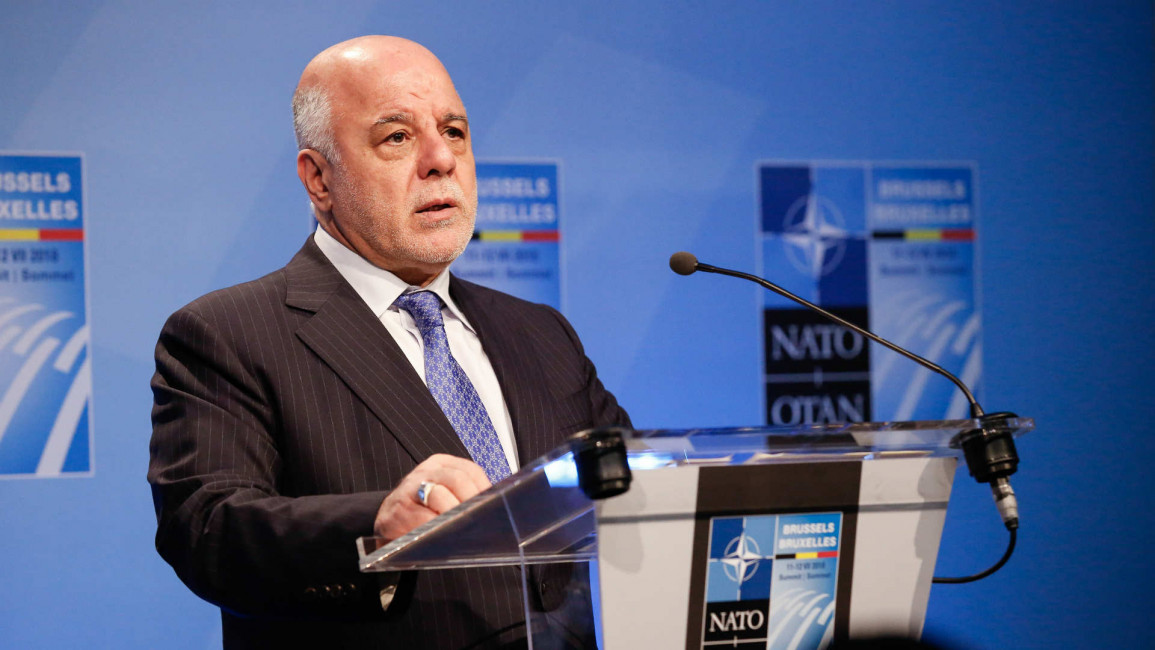Responding to protest anger, Iraqi PM refers ex-ministers to corruption investigation
Responding to protest anger, Iraqi PM refers ex-ministers to corruption investigation
Three former education ministers are thought to be among those referred to a corruption probe by Iraq's prime minister, in a bid to quell protests.
2 min read
The Iraqi PM risks being ousted from mass unrest [Getty]
Iraqi Prime Minister Haider al-Abadi on Tuesday announced he had referred a number of former ministers and high-ranking officials to the country's integrity commission, which investigates corruption.
Abadi's move came "against the background of corruption in the contracts of schools lagging in several provinces," according to a statement issued by the Prime Minister's office on Tuesday morning.
The statement did not specify the names or number of those sent to the commission. However, sources close to Abadi told The New Arab that among them are three former education ministers, identified as Khudair Khuzaie, Mohammed Tamim and Mohammed Iqbal.
Also named by the sources were senior officials in the departments of electricity and local government.
Officials confirmed to The New Arab that the prime minister is taking action against suspected corrupt officials in secret, adding that the move shocked even those involved.
Read more: Confronting sectarianism in Iraq
The latest developemts come as violent protests swept towns across Iraq over recent weeks. A major demand of the demonstrators is the end to corruption that has riddled the country's governing class for decades.
Graft and poor management in government bodies are some of the most significant challenges Iraq has faced since the fall of the former regime in 2003.
Last month Abadi sacked his minister for electricity due to "of the deterioration in the electricity sector".
The current unrest in the country was sparked by chronic power shortages, with protestors demanding the removal of the energy minister, Qassem al-Fahdawi from his post.
Observers believe that if Abadi is to hold on to his position as Prime Minister, he must take drastic action to tackle the sources of profound resentment among the population.
Follow us on Twitter: @The_NewArab


